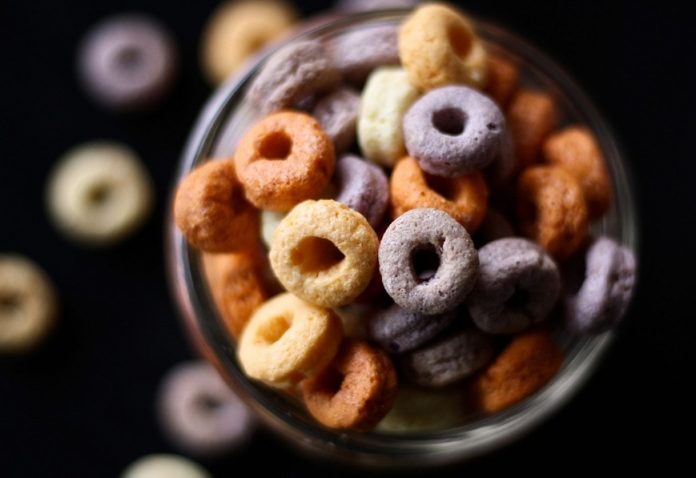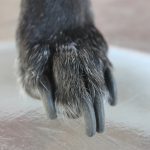Ever dropped some Cheerios and found them gone because your dog gobbled them down in seconds? If this happens in your household all the time, you are not alone.
Most dogs can’t refuse breakfast cereals. So your pup loves Cheerios and you did not notice any changes in your pet whenever you gave him a cup. However, is it good for him?
In this post, we took some juicy information from dog experts about feeding Cheerios to our pets. We will discuss the nutritional values, how much should you give your pet, and why many dog owners give cereals as a treat.
Safety of Giving Breakfast Cereals to Dogs
Cheerios are made from whole grains. There was a notion that whole grains are harmful to them. This is because of grains’ tendency to causes some issues in his digestion. However, there is no reliable evidence that can attest to this.
Dr. Cailin Heinze, a vet nutritionist, said grain-free diets for pets are just a marketing concept. Just because a product label reads “grain-free” does not mean it is the best choice for them. The truth is most dogs are very capable in digesting grains and the allergy to grains is almost non-existent.
In fact, your pet can benefit from the nutrients in breakfast cereals. Whole grains are not just loaded with vitamins and minerals but also packed with a substantial amount of fiber and essential fatty acids your pet needs on a daily basis.
Can dogs eat Cheerios?
Yes! But as much as possible, only give him small quantities of these cereals. Most veterinarians would only recommend the plain ones as it is the one with the least sugar content among all the Cheerios flavours.
Vet tech Julie Ann advised not to overdo giving Cheerios. She believes that this breakfast cereal is not really a bad treat for our pets when given in small quantities.
Take note of the maximum amount you can give your pet each day. Rick Woodford, a dog owner and trainer wrote that the amount depends on the weight of your pooch.
As per Woodford, here is the recommended maximum daily intake:
• 4 kg. Dog: 2 tablespoons
• 9 kg. Dog: 1/4 cup
• 18 kg. Dog: 1/2 cup
• 36 kg. Dog: 1 cup
There you have it! Plain Cheerios are not bad for dogs so don’t worry about giving them to your pet in reasonable amounts. But how about the Honey Nut Cheerios? Yes, they are safe for them too.
If this is the first time you’re giving him Cheerios, see how he reacts to it. Did the cereal make him gassy? Did he actually like it? In case your pet did not look like he enjoyed it, you may want to go for other kinds of dog treats.
Low-value vs. high-value treats
Many dog trainers use treats to keep their pets engaged. When you are training your puppy the basics but could not catch his attention, you could try giving him treats like Cheerios and other breakfast cereals.
Cheerios are often regarded as low-value treats. Certified Professional Dog Trainer Judy Luther agreed but she emphasized that there is something you can do about it to entice your pet. Use it along with a high-value treat such as a prime rib or dried salmon and your pet will likely follow.
“America’s Veterinarian” Dr. Marty Becker even identified Honey Nut Cheerios as a great enticement for puppies. A Fear-Free advocate, he uses certain foods to instantly get the attention of animals. Believe it or not, it was effective.
Cheerios Nutritional Value
What’s in a cup of Cheerios? Besides the whole grain oats, there is also sugar, salt, wheat starch, and modified corn starch. Based on the label, it has mixed tocopherols that were added to preserve the product’s freshness.
Cheerios are usually packed in boxes so it goes without saying that they already have preservatives. However, just because it already contains preservatives doesn’t mean they are harmful. After all, no one’s giving their pooch the entire carton, right?
On the positive side, a cup of Cheerios is loaded with iron. According to a food database, a cup of this breakfast cereal without milk contains as much as 45% of iron. (Take note, you are not supposed to add some milk into his food. Most of our doggies are lactose intolerant.)
Dogs, just like humans, need an adequate iron intake for red blood cells production. Like us, our pets may also suffer from anemia due to the lack of enough iron.
Aside from iron, your dog can also get the following vitamins and minerals from a cup of Cheerios:
• Calcium – 10%
• Vitamin A – 10%
• Vitamin C – 10%
Breakfast Cereal Ingredients to Avoid
When shopping for breakfast cereals, use this as a reference because there are certain “people foods” to avoid. Take note of these items in case you are planning to share your food with your pooch:
• Chocolate – Save those Cheerios Chocolate for yourself. Don’t give them to your dog because chocolate is bad for him. Sadly enough, chocolate can, in fact, poison them.
• Raisin/Grapes – did you know that even a small amount can make your dog ill? They may suffer from kidney failure just from eating grapes or raisins.
• Macadamia nuts – like chocolate, these types of nuts can kill your pooch. When ingested, macadamia nuts can cause vomiting and weakness. See if this is included in that breakfast cereal you’re buying.
• Almonds – they are not as toxic as chocolate or raisins but they are hard to digest. Almonds have been linked to diarrhea and vomiting in dogs.
Healthier Alternatives to Cheerios
Remember that there are so many healthy treats out there that are way cheaper than Cheerios. Dogs, like us, also need a balanced breakfast. That means you are not supposed to give your puppy Cheerios as his full meal.
Just like how most people do it, you can incorporate it with other fruits and berries. It does not only make the food more interesting but it also makes it balanced as well. Take a look at our list below:
• Raw carrots – like breakfast cereals, raw carrots are high in fiber. But they are more wholesome because they do not contain any preservatives. Plus, they contain very low calories so you won’t have to feel guilty about giving them to your puppy! If you prefer, you can even give your dog cooked carrots. They are as nutrient-dense as the raw ones.
• Crunchy biscuits – the Internet is loaded with crunchy biscuit recipes for them. Hop on to Pinterest for recipes for these wholesome treats!
• Peas – there are so many ways you can incorporate them into your pet’s diet. You can either serve them thawed or frozen. Peas are way more affordable than Cheerios and more nutritious as well. Also, they contain potassium and thiamine that are important especially for growing pups.
• Plain rice cakes – like the cereals, plain rice cakes are fine for your pet as long as they were served in small quantities.
• Pumpkin – both fresh pumpkin and the canned puree are just fine. Pumpkins are known as one of the natural laxatives for doggies.
• Sweet Potatoes – they are also rich in dietary fiber. Just make sure that the sweet potatoes were already dehydrated or dumped in a pot with water before cooking. Like any other treat, they should be given in moderation.
• Cauliflower – you can give some in small servings. Don’t give too much of it because it might make him gassy.
• Green beans – as long as they are served without salt, green beans make a perfect treat for our furry friends. You can give them to him in any way you want: steamed, canned, or just as it is.
• Broccoli – there are some dog owners who don’t give broccoli to their pets because they believe that they can do just fine without any green veggies in their diet. Contrary to this, you may give broccoli to your dog but do it in small bites and don’t feed him too much.
• Popcorn – as long as the popcorns were air-popped, you don’t have to worry about giving it to him. Just don’t add anything to it, not even butter.
Conclusion
Can you give dogs Cheerios? Yes, but do it sparingly. Are Cheerios bad for dogs? No, when given in small servings.
If you are worried that the cereal can add to his calorie intake, reduce certain amount of other foods from his diet. Sounds cliché but you have to remember this one old saying: too much of everything is bad. Of course, it is important to check how your pooch reacts to it.
Note: Cheerios is just a brand of cereal. You might be using any other brand and there would be no problem about that. It’s just that most people often interchange cereals and Cheerios because that’s what they are used to. After all, Cheerios is already a household name so they might have grown up with this brand.




















